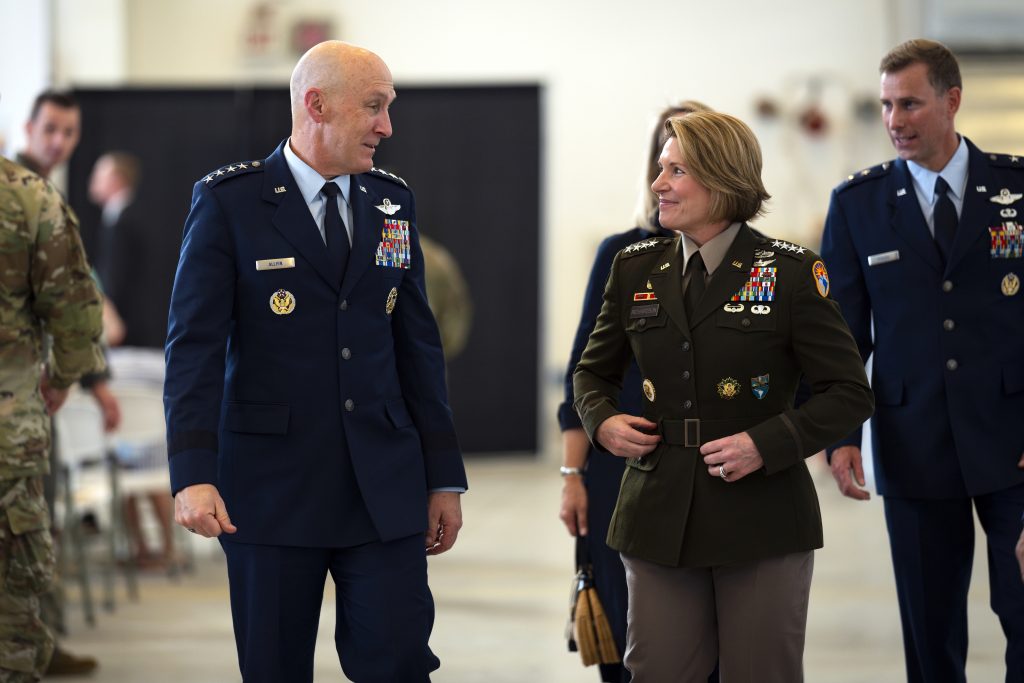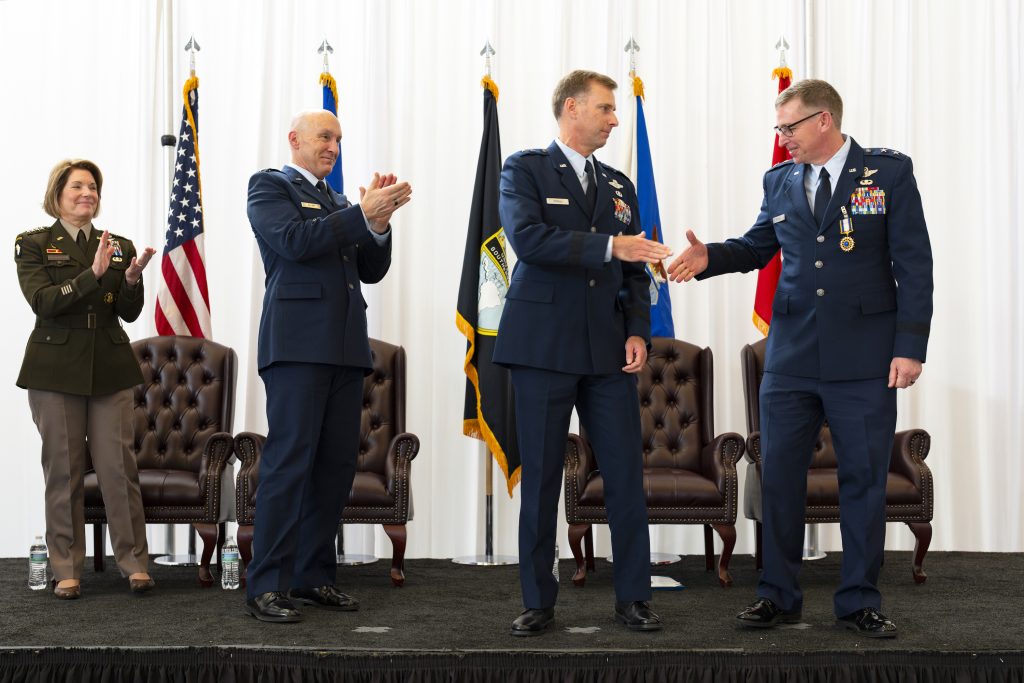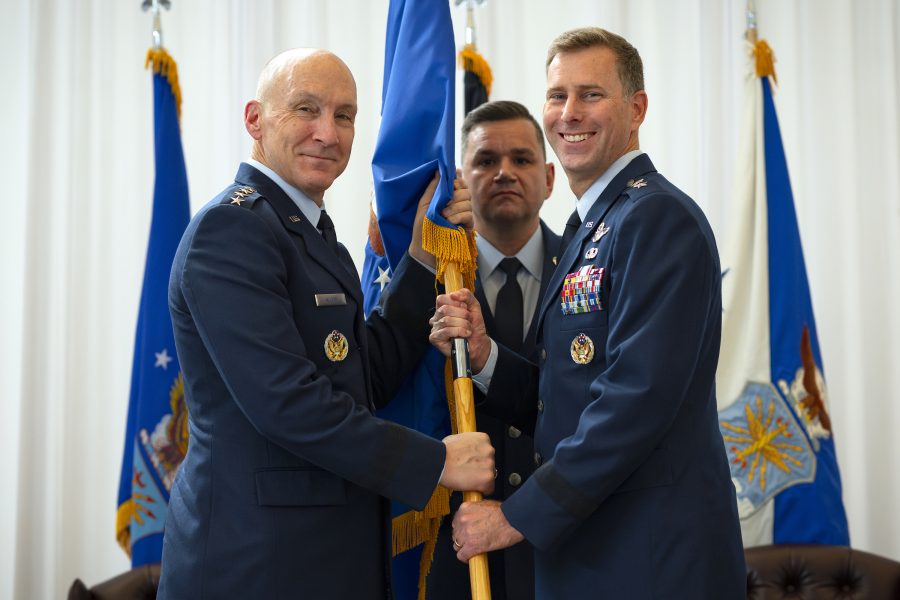As Maj. Gen. David A. Mineau accepted the guidon for Air Forces Southern on Sept. 11, it was Chief of Staff Gen. David W. Allvin handing it over, not the commander of Air Combat Command. That’s because Air Forces Southern is no longer under ACC as part of the 12th Air Force, but has been elevated to a “service component command,” reporting directly to CSAF.
AFSOUTH now has “the same access, the same decision-making processes, and the same meetings” asU.S. Air Forces in Europe, Pacific Air Forces, and Air Mobility Command, Allvin said during the ceremony.

The change is part of the Air Force’s “re-optimization” for great power competition, in which Allvin is seeking to redefine USAF’s traditional conception of major commands. His new constructs designates each MajCom as either an “institutional command,” responsible for organizing, training, and equipping fgorces, or “service component commands” responsible for presenting forces to unified combatant commands. In doing so, he has also rethought how Numbered Air Forces fit into this broader picture.
AFSOUTH was formally a component of the 12th Air Force (Air Forces Southern) and reported to ACC. Soon to follow are:
- Air Forces Central (9th Air Force)
- Air Forces Cyber (16th Air Force)
- Air Forces North and Air Forces Space (1st Air Force)
Air Forces Southern is responsible for USAF’s presence in the Caribbean and Central and South America—not typically an area where the Air Force has had to devote many resources.
But U.S. Souther Command boss Army Gen. Laura J. Richardson and others has warned that China and Russia are seeking to expand their influence in the region, growing the threat in the U.S.’s backyard.
“The mission we do here is not talked about a lot, it’s not in the news a lot but it is so critically important to our nation, to our hemisphere,” said Mineau. “The expertise you all have not just in the application of airpower and cyber, but your knowledge in Latin America and the Caribbean is world-class.”
Allvin said elevating AFSOUTH and other component commands recognizes exactly that. “It is an acknowledgment and a recognition that competition is global,” said Allvin. “The challenges are just as difficult across the board. They may be different in nature, but they’re the same in consequence.”

Institutional Commands
- Air Combat Command
- Air Force Materiel Command
- Air Education and Training Command (to become Airman Development Command)
- Integrated Capabilities Command*
Component Commands
- Pacific Air Forces (presents to U.S. Indo-Pacific Command)
- U.S. Air Forces in Europe-Air Forces Africa (U.S. European Command and U.S. Africa Command)
- Air Mobility Command (U.S. Transportation Command)
- Air Force Global Strike Command (U.S. Strategic Command)
- Air Force Special Operations Command (U.S. Special Operations Command)
- Air Forces Southern (U.S. Southern Command)
- Air Forces Central (U.S. Central Command)*
- Air Forces Cyber (U.S. Cyber Command)*
- Air Forces North and Air Forces Space (U.S. Northern Command and U.S. Space Command)*
*Future
